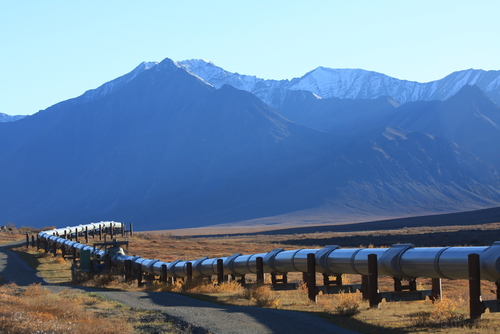
The natural beauty of the British Columbia landscape is being modified by pipeline development and expansion.
By Tricia Sans Chan
Members of the Shackan First Nation drew a line in the sand and told Big Oil to get out of their backyard.
The second day of oral Aboriginal testimony organized by the National Energy Board will be heard today in Kamloops, B.C.
Lennard Joe, son of Chief Percy Joe, told the board yesterday that the Shackan people, who identify as People of the Creek, view the environment as their primary resource.
“Everything we do comes from the basic principal that this is our house,” Joe told the board. “The food, the shelter, the clothing, the heat, the medicine, the water, all comes from this house.”
The independent federal regulator is holding these hearings until Nov. 20 in opposition to the Trans Mountain Expansion Project. The project proposes to add 990 km of new pipeline and to reactivate 193 km of existing pipeline between Edmonton, A.B. and Burnaby, B.C.
The pipeline currently carries 300,000 barrels of oil per day (bpd). According to a study released by the Council of Canadians, the expansion would see that number almost triple to 850,000 bpd. That’s more than the Enbridge Northern Gateway Project, which carries 550,00 bpd and more than the proposed Keystone XL’s 700,000 bpd.
The increased capacity is a big concern for affected communities. The pipeline currently traverses through Jasper National Park and the Rocky Mountains. It crosses 98 streams and rivers, farm land and the backyards of a number of communities. It also encroaches on the territory of 11 First Nation reserves in B.C.
On Dec. 1, 2011, leaders from more than 40 First Nations communities including Squamish Nation, Sumus and Tsleil-Waututh signed the Save the Fraser Declaration, which outlines the Aboriginal community’s relationship to the Fraser watershed, an area they argue will be most impacted by the expansion of the Trans Mountain Expansion Project and the development of the Enbridge Northern Gateway Pipelines project. Since 2011, the number of First Nations signed onto the declaration has grown to over 130.
They oppose any further development in the Fraser watershed, as outlined in the declaration.
Therefore, in upholding our ancestral laws, Title, Rights and responsibilities, we declare:
We will not allow the proposed Enbridge Northern Gateway Pipelines, or similar Tar Sands projects, to cross our lands, territories and watersheds, or the ocean migration routes of Fraser River salmon.
Joe told the board that his father, Chief Percy Joe told him as a boy, that in order to survive they must learn to think like the white man.
“So with that, there’s been much development,” said Joe. “The railway came through, the power lines came through, telephone lines came through, the highway came through.”
The Shackan people have had enough with development. They said implications of expansion pose too great a threat, and the benefits to Big Oil outweigh the risks to the planet and the people on it.
In an email response, Greg Stringham, vice-president of the Canadian Association of Petroleum Producers told Humber News that pipeline development in general is key to Canada’s oil markets remaining profitable.
“In the longer term, Canada continues to develop its ‘all of the above’ options for market access and diversity,” he said. “Working with options to the West and East Coasts of Canada as well to the United States and using other modes of transport such as rail and marine.”

The Save the Fraser Declaration is an Indigenous law banning tar sands pipelines and tankers from crossing BC, signed by representatives of over 130 First Nations.
In regards to environmental concerns surrounding pipeline development, and referencing Keystone XL in particular, he said there has been enough vetting of the project.
“Keystone XL remains important to the Canadian industry as it is the first in the line of projects to provide access to markets for Canadian oil, has been through a comprehensive and extensive environmental and national interest review which has demonstrated that it should be approved on its merits,” said Stringham.
The Council of Canadians argues that oil spills are inevitable. They say it is not a question of will it happen, but when? And how extensive will the damage be? Between 2005 and 2012, over 554,000 barrels of oil were released into the B.C. environment via oil spills or pipeline ruptures. This number does not include oil spilled directly into the ocean from tanker spills.
The Shackan people said they will not risk their homes or livelihood any further. In the 2011 declaration, they say they are adamant and resolved to protect their lands and waters according to Indigenous law.
We will not tolerate this great threat to us and to all future generations.
Joe already sees the repercussions of Big Oil in his home, and he sees it as an intrusion on his way of life.
“We never had to dust off our huckleberries and wash them, because of the dirt from roads,” he said.

The Enbridge Northern Gateway Pipelines and the Kinder Morgan Trans Mountain Expansion are the primary project the Save the Fraser Declaration opposes, though they are against any further pipeline development in British Columbia.

